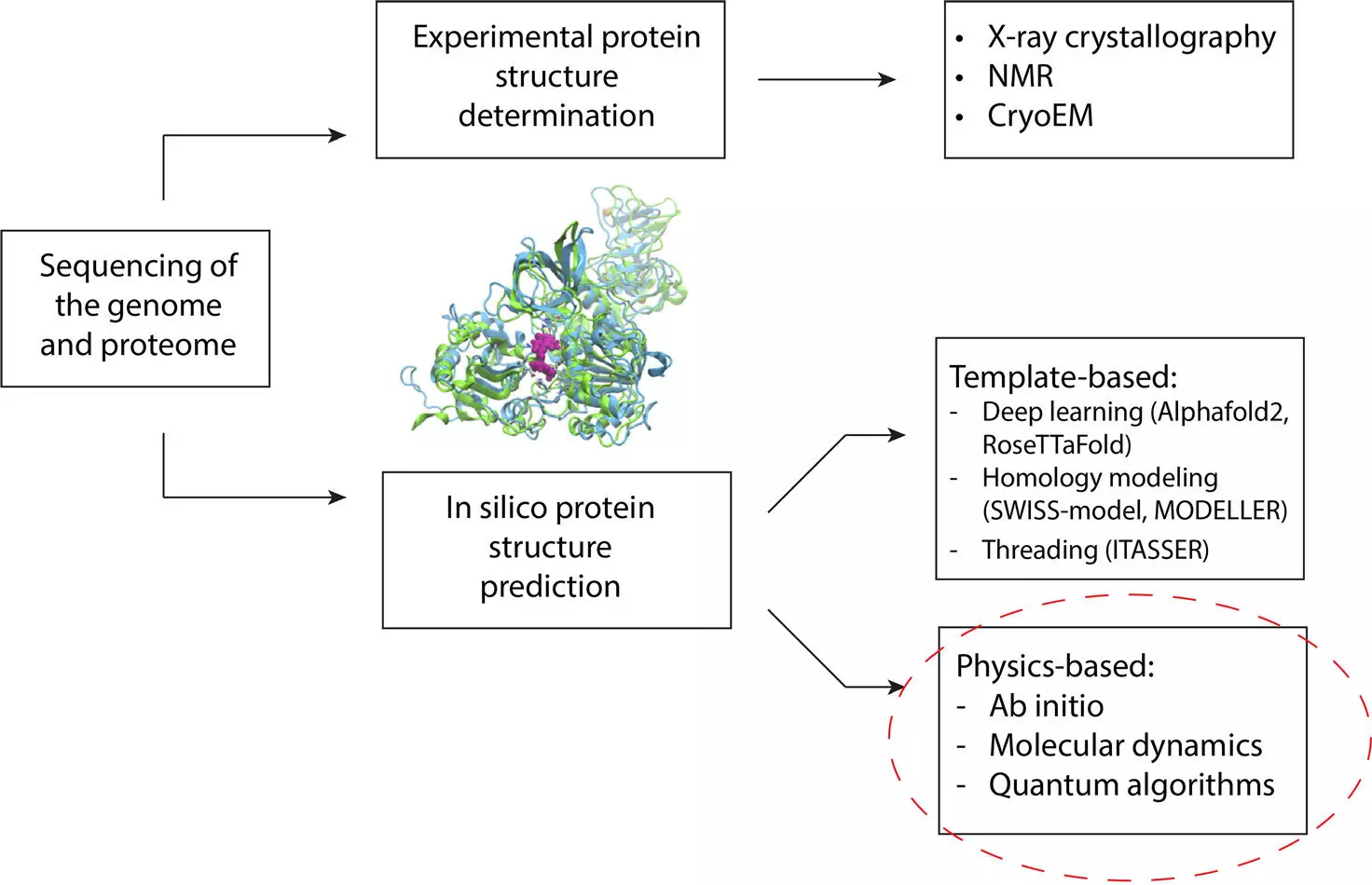Protein structure prediction has long been a critical area of research for understanding human health and disease. Recent developments in quantum computing have opened up new possibilities for enhancing the accuracy and efficiency of predicting protein structures. A recent study by researchers from Cleveland Clinic and IBM has shed light on the potential of quantum computing methods in this field.
Challenges in Protein Structure Prediction
Predicting protein structures is crucial for developing effective therapies and treatments for a wide range of diseases. Traditional computational approaches rely on training data to make predictions, which can limit their accuracy when faced with mutated proteins or genetic disorders. Simulating the physics of protein folding is an alternative method, but it can be extremely complex and time-consuming on classical computers, especially for larger proteins.
The Role of Quantum Computing
The research team led by Dr. Bryan Raubenolt and Dr. Hakan Doga explored the use of a hybrid quantum-classical computing framework to overcome the limitations of traditional methods. By leveraging quantum algorithms for modeling the lowest energy conformation of protein fragments, they were able to improve the accuracy and efficiency of protein structure prediction.
Advancements in Quantum Computing
The study validated the effectiveness of the quantum-classical hybrid framework by accurately predicting the folding of a small fragment of a Zika virus protein. The results surpassed those of state-of-the-art classical methods and even outperformed AlphaFold2, a renowned protein structure prediction tool. This demonstrates the potential of quantum computing in creating accurate protein models without heavy reliance on training data.
One of the key strengths of the research team was the diverse range of expertise involved in the project. From computational biology and chemistry to quantum computing and algorithm design, the team brought together a multidisciplinary approach to tackle the complex problem of protein structure prediction. This collaboration allowed for the deconstruction of the problem into smaller parts, with quantum computing addressing some aspects and classical computing handling others for enhanced accuracy.
Moving forward, the team plans to further develop and optimize quantum algorithms to predict the structures of larger and more intricate proteins. This ongoing research represents a significant step towards harnessing the capabilities of quantum computing in protein structure prediction. Dr. Doga emphasizes the importance of exploring the strengths of quantum computing in this field and the potential impact it could have on advancing our understanding of protein structures and their role in diseases.
The integration of quantum computing into protein structure prediction holds great promise for revolutionizing the field. By combining the strengths of quantum and classical computing methods, researchers are paving the way for more accurate and efficient predictions of protein structures. This interdisciplinary approach not only showcases the power of collaboration across different disciplines but also highlights the potential for quantum computing to drive innovation in biomedicine and healthcare.


Leave a Reply